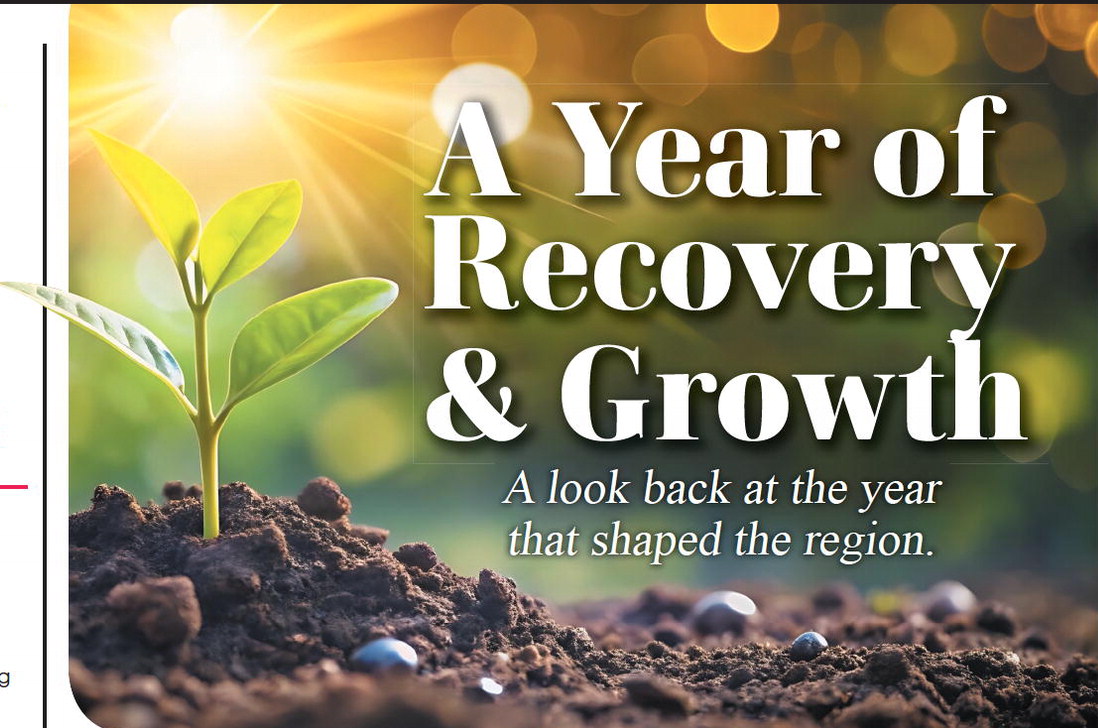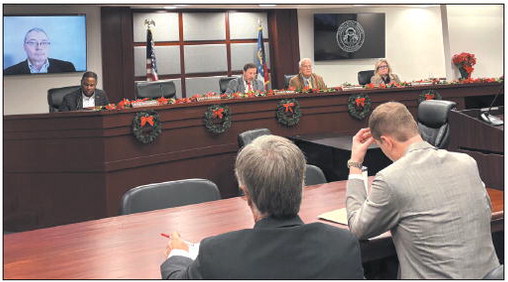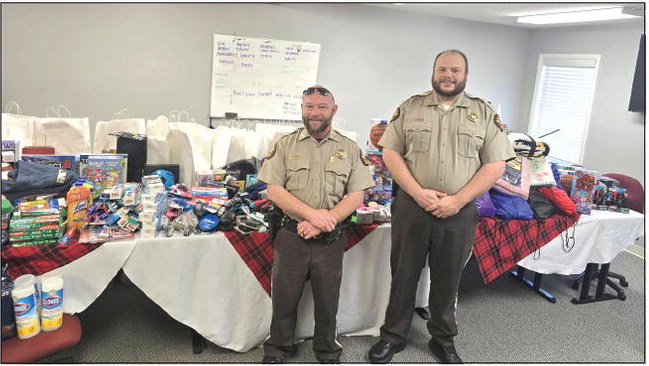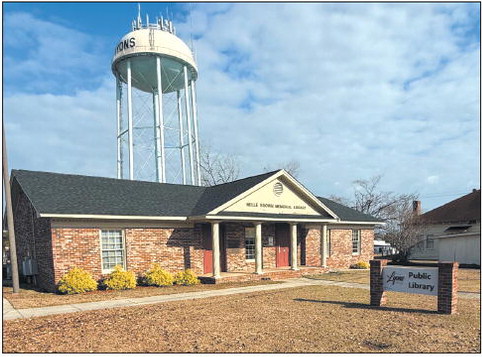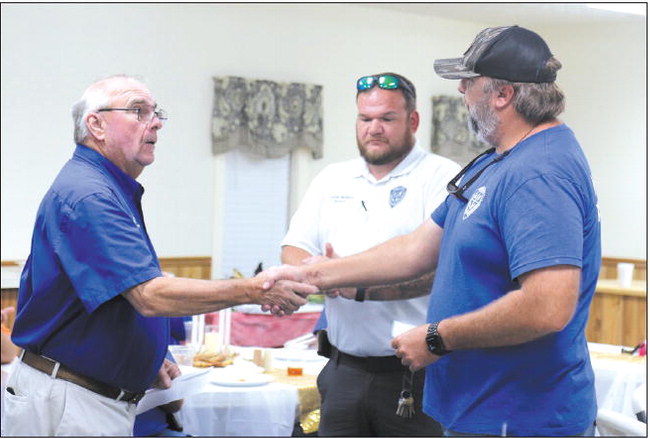chatWITH…
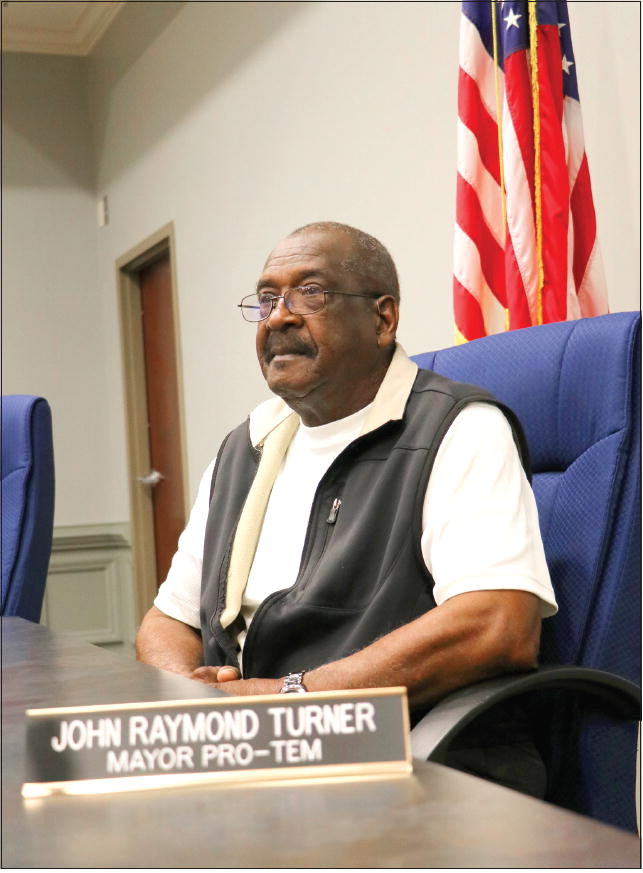

A chatWITH…
“I don’t know how to say ‘no’ to anybody. Especially when they really need something,” Raymond Turner said. “I don’t care what time they call me, I take time to listen to them.” When asked to describe himself, his life, Mr. Turner said, “I’m a public servant. That’s how they look at me, and that’s the role I fill.” It seems his self-description is accurate given the fact that he has faithfully served the City of Vidalia as a councilman since 1983. “December of this year will make 38 years,” Turner said. John Raymond Turner was born on October 9, 1941, in Metter, Georgia. However, when he was six months old, his parents relocated to Vidalia where Mr. Turner has lived most of his life. His father, Syrus Turner, was a barber by trade, but worked as a custodian for Vidalia High School. His mother, Mary Lou Turner, worked as a beautician. After graduating from high school, Raymond Turner moved to Savannah for a year and worked for the Atlanta Life Insurance Company. In 1962, he moved to Bridgeport, Connecticut, and worked for Keys Book Service. A year later, he returned home to Vidalia with the intension of marrying the woman who has been his wife for 53 years: Lillie McNear Turner. Mr. Turner grew up knowing Mrs. Lilly, but it wasn’t until a night at the Gem Theater in Vidalia that their relationship really began. “I had seen her but I never had the courage to approach her,” he laughed out the words. “So I got one of my classmates, a friend, to put in a good word for me with her that night. And so, it all started there.” Before the couple married, Mr. Turner was drafted into the army in 1964 and spent 2 1/2 years in Frankfurt, Germany. It was during his service that he suffered a knee injury that has remained with him since. After his time in the army, Mr. Turner returned to Vidalia and marry Mrs. Lilly in 1966. They have one son, Donald Keith Turner, who has also chosen to make his life here in Toombs County.
“Vidalia was a good place to grow up,” Turner said. “During the time I grew up, everybody knew everybody. There was a community involvement in raising kids, and that was a good thing.” A significant part of Mr. Turner’s community is and has always been found at St. Paul’s African Methodist Episcopal Church in Vidalia, where he serves as Sunday School Superintendent, President Pro Tem of the Steward Board and a membership class leader. Mr. Turner is a freemason, 32nd degree, and a long-time member of Mt. Horeb, Lodge number 114 in Vidalia. He is also a member of the American Legion. He worked for Piggly Wiggly Southern for 29 1/2 years, and his wife worked and retired from Oxford Industries after nearly 40 years.
It was members of his church family that prompted Mr. Turner to become involved in city politics. He never imagined that for himself. “One of the ladies in the community who belongs to my church— Mrs. Flossie Hayes—she encouraged me to run [for City Council]. She paid my qualifying fee, and I ran. That was in 1979. I didn’t win, but I ran a good race. Then we petitioned the city to cut the city into wards. They did that. I ran again in 1982, was elected in 1983, and I’ve been there ever since.” In the mid-nineteen seventies, “there was no black representation on the City Council,” Mr. Turner said. With his successful campaign and election, Councilman Turner was the first to provide that representation.
Reverend J.E. Curry was another significant influence in Mr. Turner’s political pursuits, as Curry was pastor of St. Paul’s AME church in the 1960s. “He was very involved in the community and in getting people to vote, getting other people involved, and moving things forward,” Turner recalled. “He was instrumental in helping blacks get work in the factories, because at the time, we weren’t in the factories. He was very influential in the community. In fact, there’s a subdivision in Vidalia named after him: Curry Heights, over behind J.D. Dickerson Primary School. I live in one of the houses he built,” Mr.
Turner said with a hint of pride. Reverend Curry was the first one to suggest that Turner become involved in city politics. “I heard what he said at the time, but I still wasn’t motivated to do it. Mrs. Hayes was the one who gave me the motivation. [That motivation] was planted in me by him, but Mrs. Hayes was the one who got it out of me.”
Turner chuckled at the memory.
“I’ve seen a lot of changes take place during my time,” Mr. Turner said.
In chatting about some of those changes, he listed a few with which he is especially proud to have been involved. He was on the council when the city constructed the Highway 280 West overpass—a large undertaking for the city.
Turner was involved in adding an extension onto City Hall, which made the building handicap accessible. The community center continued from page
and a later addition to that building were constructed during his time on the Council. “One of the biggest [projects] was opening the Onion Museum,” he said. “That building was donated to the city and was located across from BI-LO. But one Sunday, we moved the whole building down 280 to the location that it is now.” Mr. Turner saw the one-way pair develop through the center of Vidalia and considers it “one of the best things [the Council has] done” to manage the city’s flow of traffic. “Another one of the biggest projects we had was the Municipal Building, where the old Winn-Dixie used to be.” This is where the City Council now holds their monthly meetings. These were just a few of the many changes Turner has seen come to fruition.
“Vidalia is a great place to live, and I look forward to even better things to come,” Mr. Turner said. Among the “things to come,” he described future projects, challenges to be faced, and hopes he has for the city he serves. He talked about the new Toombs County Courthouse, for which a groundbreaking ceremony was recently held. “It’s going to be a pretty sight to see,” he said of the building plans. He also discussed “drug-related problems” throughout the city. “Our police department and other agencies are working to get our neighborhoods straightened out,” Turner stated.
Something he feels will aid in these efforts is further community involvement. “We need the community to help us with this. It’s not something we can do by ourselves. I hope we can work on that and make our community more viable and not drug-infested.” He expounded on his hopes for future community involvement: “A lot of people complain about how a government runs, but a lot of people don’t want to participate in the process. People need to get involved and understand how things really work.”
In looking back over his years of service, he remembered a slogan that was once printed on Vidalia city car tags: “Vidalia, City of Progress.” Even though the slogan is no longer used, Mr. Turner still works to maintain the truth of those words. “If we want to see the progress, we have to continue to look for ways to make the community better. The Mayor and everybody on the City Council…they have the city’s best interests at heart,” Mr. Turner said. His fellow council member, Bob Dixon, said something similar of Raymond Turner specifically: “He is relevant and aware of the city’s needs and brings a lot of important city history to the table. He cares about people and desires the very best for them and for Vidalia as a whole.” Raymond Turner has committed his life to serving his community and has set a high standard for all who follow. May more citizens like him be found among us.

THIRTY-SECOND DEGREE FREEMASON — Mr. Turner has been a longtime member of Mt. Horeb, Lodge number 114 in Vidalia. Pictured here is Turner at a freemason meeting.

ARMY VETERAN—Mr. Turner was drafted into the army in 1964. He is a disabled veteran as he incurred a knee injury during his time in Frankfurt, Germany, while serving in the army.

FOUR MAYORS — During Mr. Turner’s thirty-eight years on the Vidalia City Council, he worked with four different sitting mayors. W. Norwood Rhodes was the mayor when Turner was elected in 1982.

MR. AND MRS. TURNER—Though they knew of each other from around town, it was a specific night at the Gem Theater in Vidalia that would begin the Turners’ love story — a story that continues 53 years later.FATHER AND SON—Pictured are Raymond Turner and his son, Donald Keith Turner, both of whom have built their lives in the town they have always called home.

MOTIVATION — When Raymond Turner was a young man, his mentor Reverend J.E. Curry was the first one to suggest that Turner become involved in city politics.




